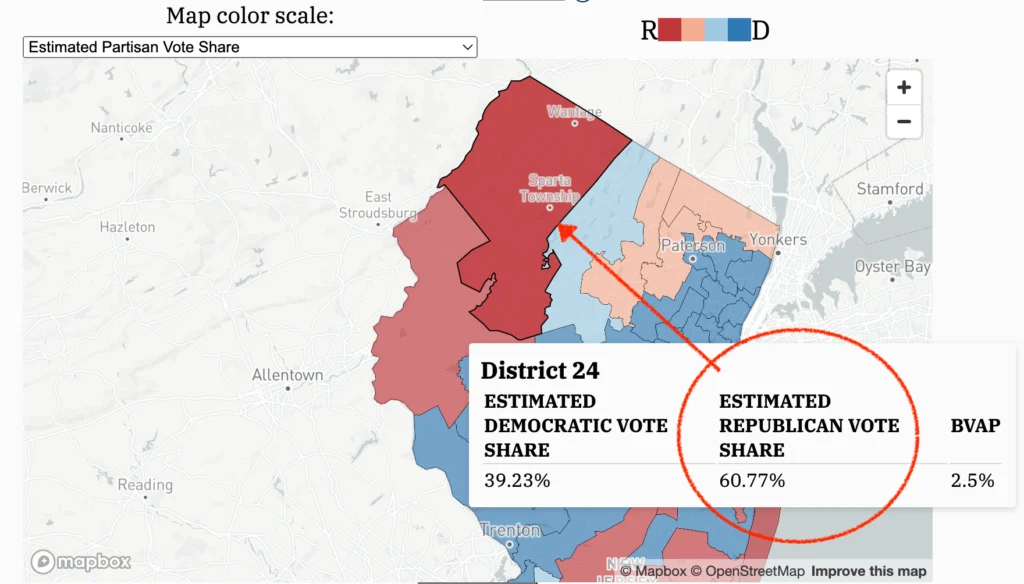June Primary Election
Every June, there is a statewide Primary Election in New Jersey. You must be affiliated with a party in order to vote in the party’s primary election.


About the "Closed" Primary Election
Primary elections in New Jersey are “closed”. This means that unaffiliated voters — those who aren’t members of any political party — can vote in the primaries only if they affiliate themselves to either the Republican or Democratic political party. In other words, you must be a registered Democrat or Republican to vote in primary elections.
The June Primary Election is only for the Democratic and Republican parties. *If you are a registered member of the Green Party, Libertarian Party, Natural Law Party, Reform Party, U.S. Constitution Party, Conservative Party or the Socialist Party of New Jersey you can participate in the convention of that party, according to its bylaws, but you cannot vote in either the Democratic or Republican Primary.
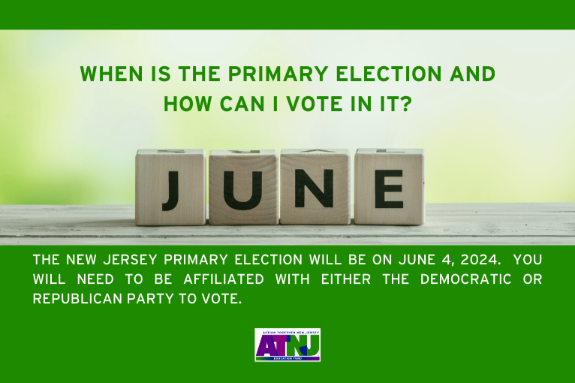
When and What Parties?
Q: WHEN IS THE PRIMARY ELECTION HELD?
A: The New Jersey primary election will be held on June 4, 2024.
Q: WHAT IF YOU ARE AN UNAFFILIATED VOTER?
A: Steps and options:
- You must affiliate with either the Democratic or Republican party in order to vote in their primary election.
- If you want to vote in person, go to your polling place during In-person Early Voting Days or on Election Day and tell the poll workers which primary you’d like to vote in — Democratic or Republican (the only two parties who qualify for primary elections under state law at this time). They will provide a Political Party Affiliation Declaration Form to fill out. Once you have voted, you can fill out another form to change your status back to “Unaffiliated.”
- If you vote by mail, you must affiliate with either the Democratic or Republican party first, in order to receive a ballot for that party by mail. Use either form below. Once your form has been received, you will be mailed the primary ballot corresponding to the political party you have selected. Mail-in ballots will be mailed out starting April 20, 2024 so we recommend VBM voters to affiliate before the commencement of that date. However, the absolute deadline for this is May 28, 2024.
Q: WHAT IF YOU BELONG TO ONE PARTY BUT WANT TO VOTE IN ANOTHER PARTY’S PRIMARY ELECTION EG. REPUBLICAN BUT WANT TO VOTE IN DEMOCRATIC PRIMARY?
A: If you are currently affiliated with a party and would like to change your affiliation to vote in another party, for example from Republican to Democratic, you must fill out the Political Party Affiliation Declaration Form at least 55 days before Election Day in order to vote in that party’s primary, which is April 10, 2024.

What Forms?
You can declare or change your Political Party Affiliation in two ways:
- Political Party Affiliation Form: fill out and mail (stamp required) or deliver to your County Clerk or Commissioner of Registration.
- Voter Registration Application: fill out Box 1 and Box 13. No stamp is required. You can also deliver it to your County Clerk.
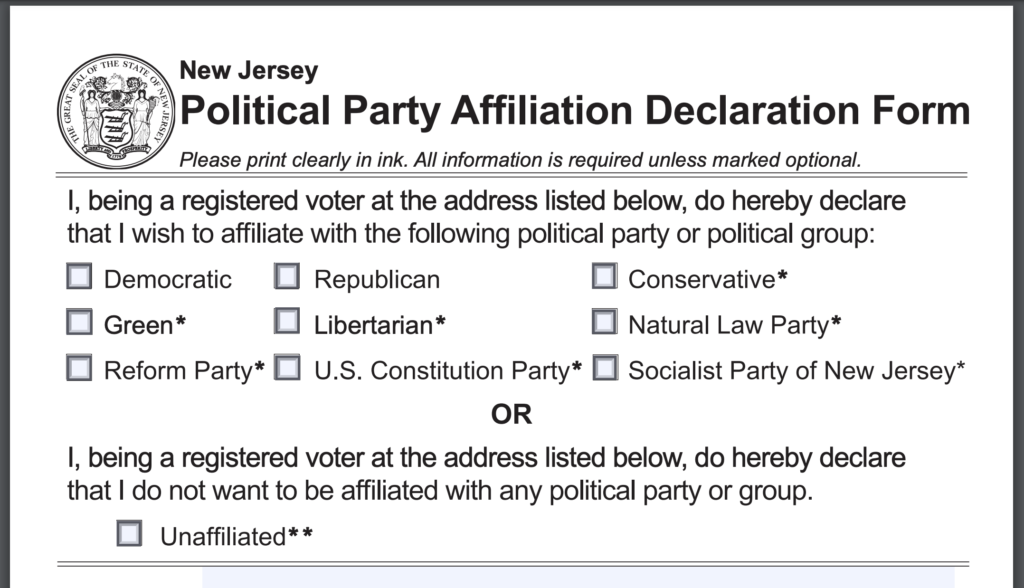
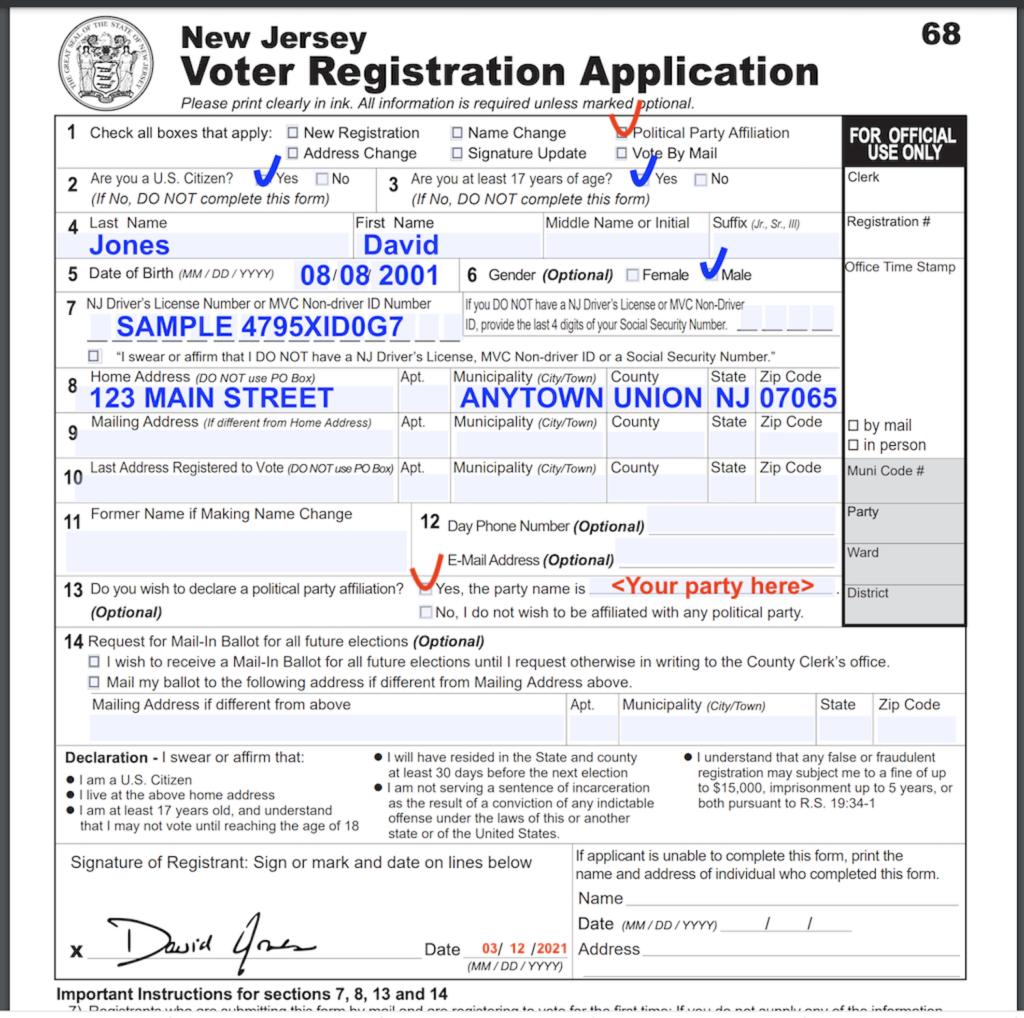
Why is voting in the June Primary Election Important?
In highly partisan districts, it’s all about simple math. In a predominantly Democratic district, whoever wins on the Democratic primary ballot will win in the General Election due to the high number of registered voters of Democratic voters in the district (assuming that Democratic voters will vote for the Democratic candidate). The math does not allow for a Republican win in this super Democratic legislative district in the November general election Therefore, the primary election winner decides the elected official. The reverse is true for heavily Republican districts.
Map of Legislative District 15 - a highly Democratic district.
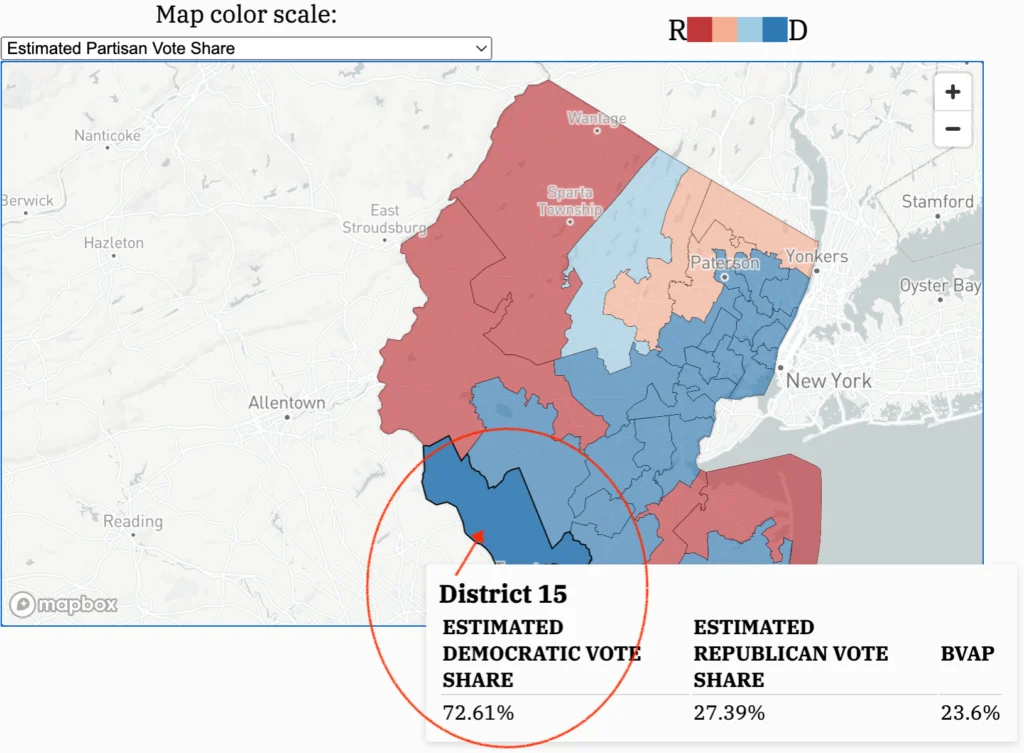
Map of Legislative District 24 - a highly Republican district.
